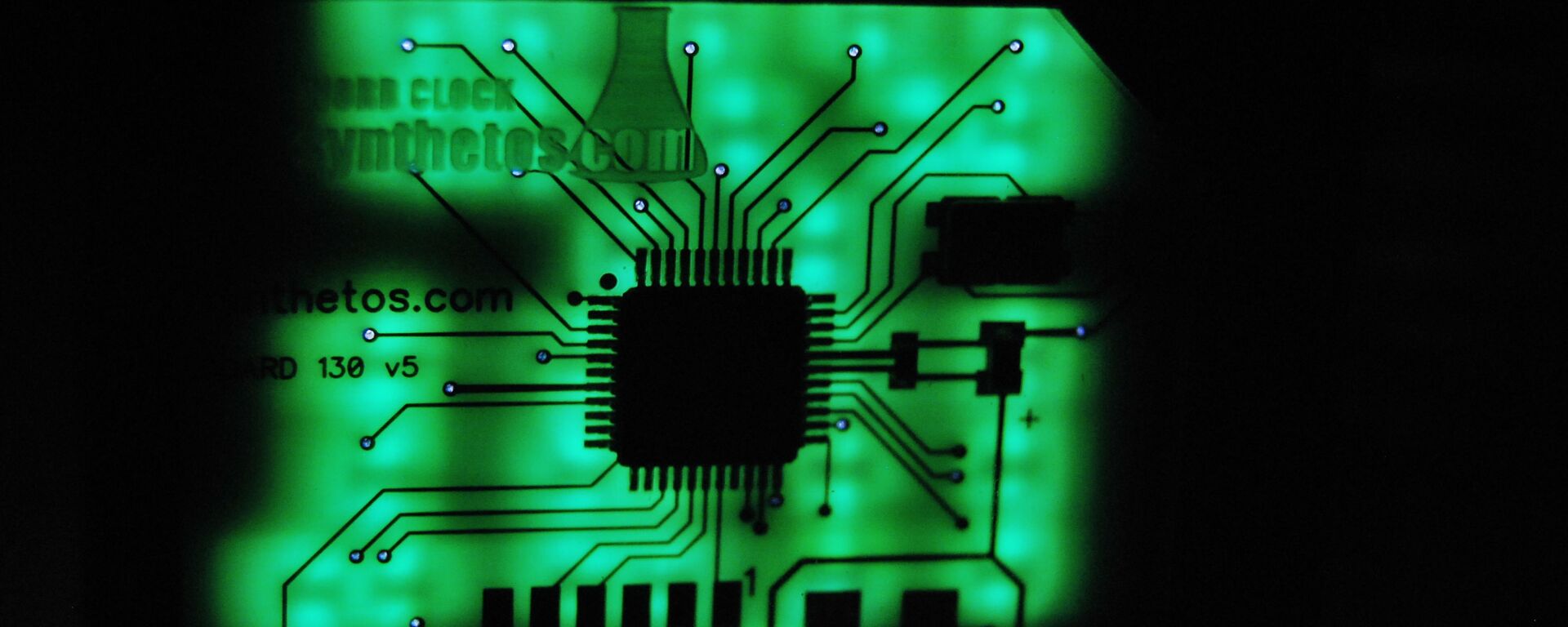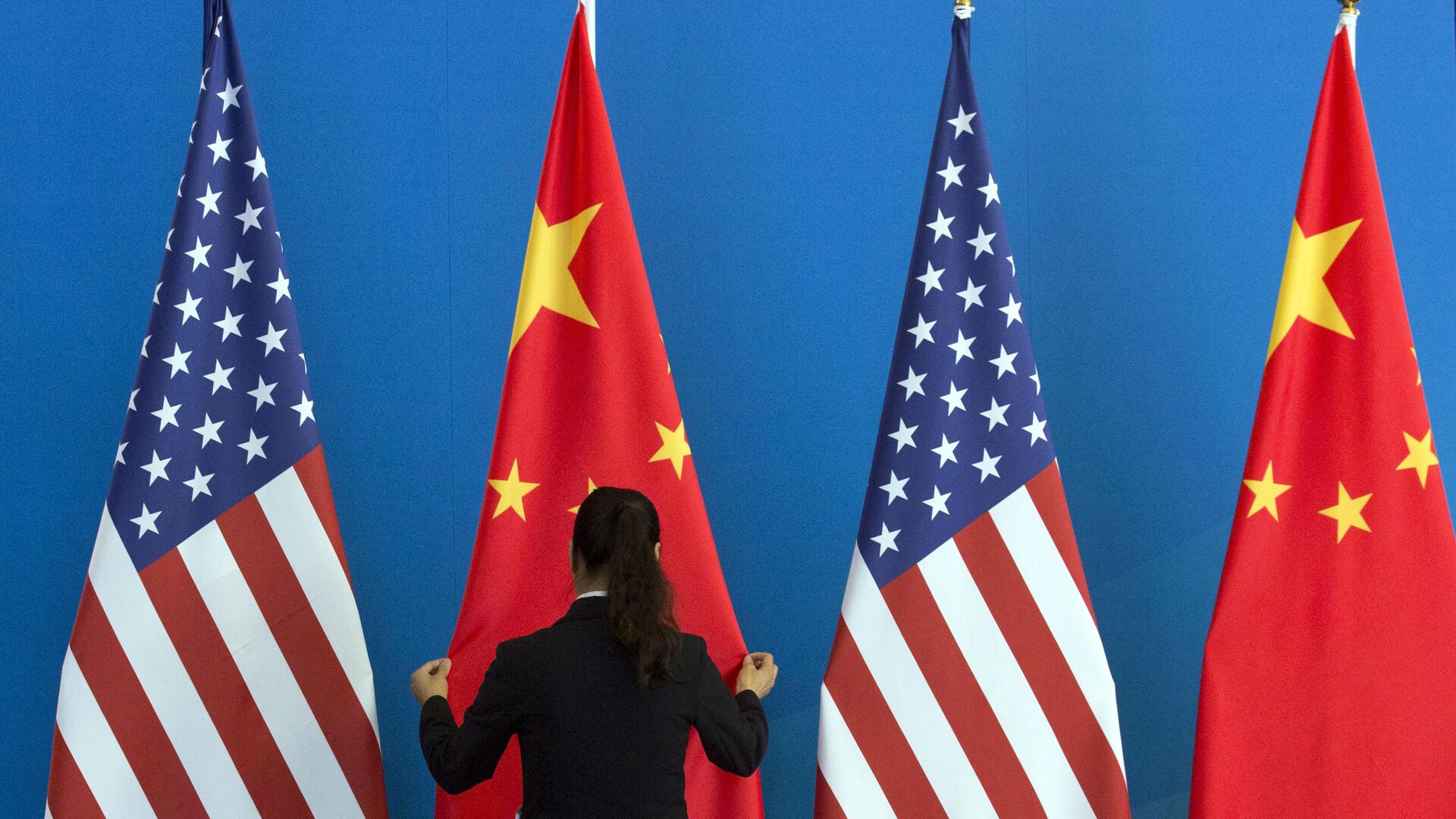https://sputnikglobe.com/20230826/us-restrictions-on-china-dictated-by-ensuring-dominance-in-pacific---not-trade-interests-1112900977.html
US Restrictions on China Dictated by Ensuring Dominance in Pacific - Not Trade Interests
US Restrictions on China Dictated by Ensuring Dominance in Pacific - Not Trade Interests
Sputnik International
Recent Biden administration restrictions to impede China's advances in different domains are not dictated by its economic interests, but instead stem from an effort to maintain US dominance in the Western Pacific.
2023-08-26T01:43+0000
2023-08-26T01:43+0000
2023-08-26T01:42+0000
analysis
joe biden
jeremy kuzmarov
china
nato
microchip
semiconductors
chipmaker
taiwan semiconductor manufacturing company (tsmc)
https://cdn1.img.sputnikglobe.com/img/07e5/01/12/1081799952_0:160:3073:1888_1920x0_80_0_0_9162f74d85eebf2ecaa044876a0419fe.jpg
The Biden administration has recently exacerbated tensions with Beijing through both economic sanctions and escalation of US involvement in the Asia-Pacific region. Earlier this month, Biden signed an executive order that restricts US companies from investing in Chinese artificial intelligence (AI) capabilities and technologies - including semiconductors and quantum computing. The trilateral summit in Camp David last week between the leaders of the US, Japan and South Korea raised suspicions of the establishment of a Western-aligned military and political bloc in the region. The Biden administration claiming NATO alignment was not a top priority of the talks did little to placate Beijing. China in reaction warned that exclusionary blocs in the Asia-Pacific will be met with vigilance and opposition from regional countries. Garver said China has benefited from the free flow of foreign, Western and US capital since 1978, when China opened, and especially since it joined the World Trade Organization in 2001. And now, Garver added, the US wants to restrict the flow of Western technology and Western capital to prevent it from contributing to the development of Chinese military capabilities. Garver pointed out, however, that the US industry is divided on the matter. China is a huge and growing market for large US corporations, which they are very reluctant to give up, he added. Resistance and Blow BackThe CEOs of major US microchip companies in recent weeks have urged the Biden administration to refrain from imposing drastic measures on China. Some even warned that new restrictions may harm US leadership in the semiconductor industry. China has retaliated to Biden's restrictions with new export controls on minerals like gallium, essential to the manufacture of microchips, and considered a critical mineral by the US Energy Department. US historian and foreign analyst Jeremy Kuzmarov views Biden's latest restrictions as a high-stakes gamble that could backfire. The United States, Kuzmarov said, is hoping to establish a formidable anti-China bloc and expedited economic productivity in Taiwan and domestic industries, but those could potentially be significant negative economic trade offs for trying to isolate China. The US and many allies are also at risk if China should decide to move on Taiwan, where one single firm - the Taiwan Semiconductor Manufacturing Company (TSMC) - makes more than 50% of the world's semiconductors. Former US diplomat Steve Young told Sputnik it would be a "disaster" if China occupied Taiwan given the world's dependence on TSMC, not to mention it could spark World War III.
https://sputnikglobe.com/20230811/why-bidens-investment-ban-wont-stop-chinas-microchip-industry-1112538373.html
https://sputnikglobe.com/20230802/chinese-tech-firms-unveil-new-microchip-production-amid-spat-with-west-1112354567.html
china
Sputnik International
feedback@sputniknews.com
+74956456601
MIA „Rossiya Segodnya“
2023
Sputnik International
feedback@sputniknews.com
+74956456601
MIA „Rossiya Segodnya“
News
en_EN
Sputnik International
feedback@sputniknews.com
+74956456601
MIA „Rossiya Segodnya“
Sputnik International
feedback@sputniknews.com
+74956456601
MIA „Rossiya Segodnya“
biden administration, chinese advancements, us-china trade, us hegemony, us dominance in western pacific, semiconductors
biden administration, chinese advancements, us-china trade, us hegemony, us dominance in western pacific, semiconductors
US Restrictions on China Dictated by Ensuring Dominance in Pacific - Not Trade Interests
WASHINGTON (Sputnik) - Recent Biden administration restrictions to impede China's advances in different domains are not dictated by its economic interests, but instead stem from an effort to maintain US dominance in the Western Pacific, experts told Sputnik.
The Biden administration has recently exacerbated tensions with Beijing through both economic sanctions and escalation of US involvement in the Asia-Pacific region. Earlier this month, Biden signed an executive order that restricts US companies from investing in Chinese artificial intelligence (AI) capabilities and technologies - including semiconductors and quantum computing.
The trilateral summit in Camp David last week between the leaders of the US, Japan and South Korea raised suspicions of the establishment of a Western-aligned military and political bloc in the region. The Biden administration claiming NATO alignment was not a top priority of the talks did little to placate Beijing.
China in reaction warned that exclusionary blocs in the Asia-Pacific will be met with vigilance and opposition from regional countries.
"This increasing alignment between Russia and China to push the United States out of the dominant position in the western Pacific and replace it with Chinese leadership underlies this wave of new sanctions against China to restrict military, relevant strategic technology, especially in areas of computers and telecommunications," John Garver, a professor with Georgia Tech International Affairs, told Sputnik.

11 August 2023, 14:30 GMT
Garver said China has benefited from the free flow of foreign, Western and US capital since 1978, when China opened, and especially since it joined the World Trade Organization in 2001.
And now, Garver added, the US wants to restrict the flow of Western technology and Western capital to prevent it from contributing to the development of Chinese military capabilities.
Garver pointed out, however, that the US industry is divided on the matter. China is a huge and growing market for large US corporations, which they are very reluctant to give up, he added.
The CEOs of major US microchip companies in recent weeks have urged the Biden administration to refrain from imposing drastic measures on China. Some even warned that new restrictions may harm US leadership in the semiconductor industry.
China has retaliated to Biden's restrictions with new export controls on minerals like gallium, essential to the manufacture of microchips, and considered a critical mineral by the US Energy Department.
US historian and foreign analyst Jeremy Kuzmarov views Biden's latest restrictions as a high-stakes gamble that could backfire.
"I think Biden's move is significant and very risky because China is becoming an economic and technological powerhouse and by decoupling from it, the US may fall behind it, which it looks to be already doing," Kuzmarov said.
The United States, Kuzmarov said, is hoping to establish a formidable anti-China bloc and expedited economic productivity in Taiwan and domestic industries, but those could potentially be significant negative economic trade offs for trying to isolate China.
The US and many allies are also at risk if China should decide to move on Taiwan, where one single firm - the Taiwan Semiconductor Manufacturing Company (TSMC) - makes more than 50% of the world's semiconductors.
Former US diplomat Steve Young told Sputnik it would be a "disaster" if China occupied Taiwan given the world's dependence on TSMC, not to mention it could spark World War III.




